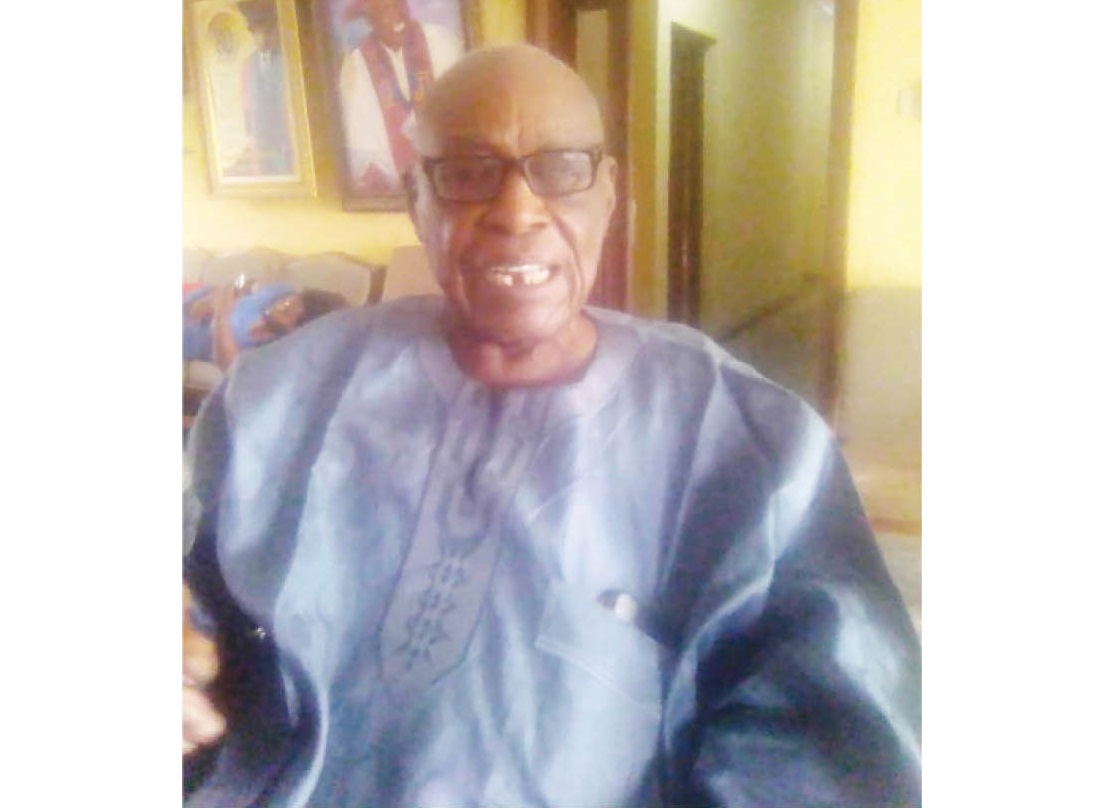- ‘My Over 50 year-experience in the field’
Prof. Edet Okon Nkposong has been a urologist for over 50 years . In this interview, the 90-year-old medic from Calabar recounts the growth of urology, a branch of medicine over the years, the link between urological problems and infertility, how to handle urological problems such as bladder cancer and problems urologists face among others.
When did you start professional practice?
I started practice in 1968 at the University College Hospital, Ibadan, and worked there virtually all my life. I also worked for short periods in Britain with St. Thomas Hospital and Institute of Urology. Then I worked in Saudi Arabia, Farasan General Hospital to be specific, and the University of Calabar.
What is urology and how popular was it in the early days of your practice?
Urology is the branch of medicine concerned with the function and disorders of the urinary system. It is the practice of surgery in the kidney and the para-renal structures, the bladder urethra and the male genitalia.
When I came in, in 1968, there was no position for me because they had never heard of a Consultant in Urology. So I happened by accident to be the first urologist in the country, then. Now I do not know how many there are but that small seed has grown to whatever it is today and I think it is now a well-established specialty in Nigeria.
In Calabar, they have a whole Department of Urology from what was previously the Department of Surgery.
Would you say the practice of urology is faring better now compared to what we had before?
You mean five decades ago, that’s a long time. I think the decadence of medicine started about 20 years ago and in my opinion, the decadence of Nigeria started with the civil war. Since then the sense of values has changed. People no longer assess character, they assess wealth and it has been so till today and getting worse.
However, urology has grown and is still growing. You cannot stop a good seed from growing and it will continue grow all over the country.
From your years of experience, what do you think are the major urological issues in the country and what is the way forward?
The way forward is to break into sub-specialties. I told you the whole kidney can be a specialty in itself; the urinary bladder has so many pathologists, but I think people can specialise in it. The male genitalia is nearly the same thing as what a gynaecologist does, and then there is the problem of sub-fertility in the males which I think has not been well pursued worldwide.
Now that we have gone to gene transplant, I think there is a need for a thrust in trying to assist males who would have been childless to have children.
Sub-fertility means that a man is not as fertile as he should be. A man is supposed to produce children but I think about 30 percent of men can’t.
When you get 100 percent of people, 30 percent will be normal, that is, the man is normal and the woman is normal. In 30 percent there may be some problem in the man or some problem with the wife, for the other 30 percent there is no way you can help them.
Is there a link between urological problems and infertility?
We do not like to use the word infertility until when a man has been well investigated. That is why I use the word sub-fertility. Urological problems and sub-fertility are connected.
What are the early symptoms of urological problems?
The early symptoms include blood in the urine and frequent urination.
What is bladder cancer?
I told you when we break down into sub-specialties, bladder is enough to be one but there are other problems of all types and we have touched a very key one, primary carcinoma of the bladder. It can also be secondary from the colon, vagina, uterus, anus, but it can start from the bladder primarily.
We have now found out that it can be more common in smokers: people who are in the dye industry and people who are exposed to certain chemicals are prone to having cancer of the bladder. But it can also start without exposure.
How can it be treated?
When you get it early, you can excise it, I do not advise endoscopic treatment, immediately you see a cancer of the bladder, open it up and know whether it has gone into the muscle, if it has entered the muscle then you check the limbs, drain it and take the one that is in the junction at bifurcation of the vessels, if it is negative, then you remove everything.
What are the early symptoms of the urological issues?
If you can remove the bladder then you do a replacement or make bypasses what we call diversion. The early symptoms include blood in the urine and then frequent urination.
Do you think Nigeria has enough urologists to cater for its teeming population?
They can never be enough. That is why medicine is a growing business but at the moment they are doing well. What they do not have is finance and it will take some time before this country realizes that good things involve costs, and that they should invest in improving quality of service. Nigerian authorities need to fund the health sector.
My advice for younger urologists is that they should manage what they have until the eyes of the authorities open and they provide them what they want.
From your years of experience, particularly in Nigeria, what do you think are the peculiar challenges urologists face in the country?
Finance; there are so many people waiting to be trained, even the ones I have trained and waiting to be promoted cannot move forward. Is that not money? We have six and among them there are only three in the university and the others are waiting for the university to employ them. One of them has waited for five years, the other one three years and the other two, that’s the problem.
I also think tribalism is the bane of growth in Nigeria. When they want to appoint you, it becomes ‘where is the mother from? or where is the father from; where did the grandfather or grandmother come from?’ If they find out that there was an Igbo person who married an Efik woman and produced a son, that man can never have a job in Igbo land because that blood has been polluted.
What are your thoughts on the issue of brain drain in the health sector?
There are too many urologists abroad, what took me to Saudi Arabia when I left Ibadan was Naira and there we were so many, and so many have refused to come back because the money is good.
What has been your outstanding feat as a urologist of 50 years?
My friend, I don’t know, let my children in the field answer that one. Because how I started; I had to do everything and I continued doing everything until I left.
Critical cases are still being referred to you …
Not referred to me for treatment but for advice.
Are you happy about that?
Until I go, I will always help everybody I find.

 Join Daily Trust WhatsApp Community For Quick Access To News and Happenings Around You.
Join Daily Trust WhatsApp Community For Quick Access To News and Happenings Around You.


